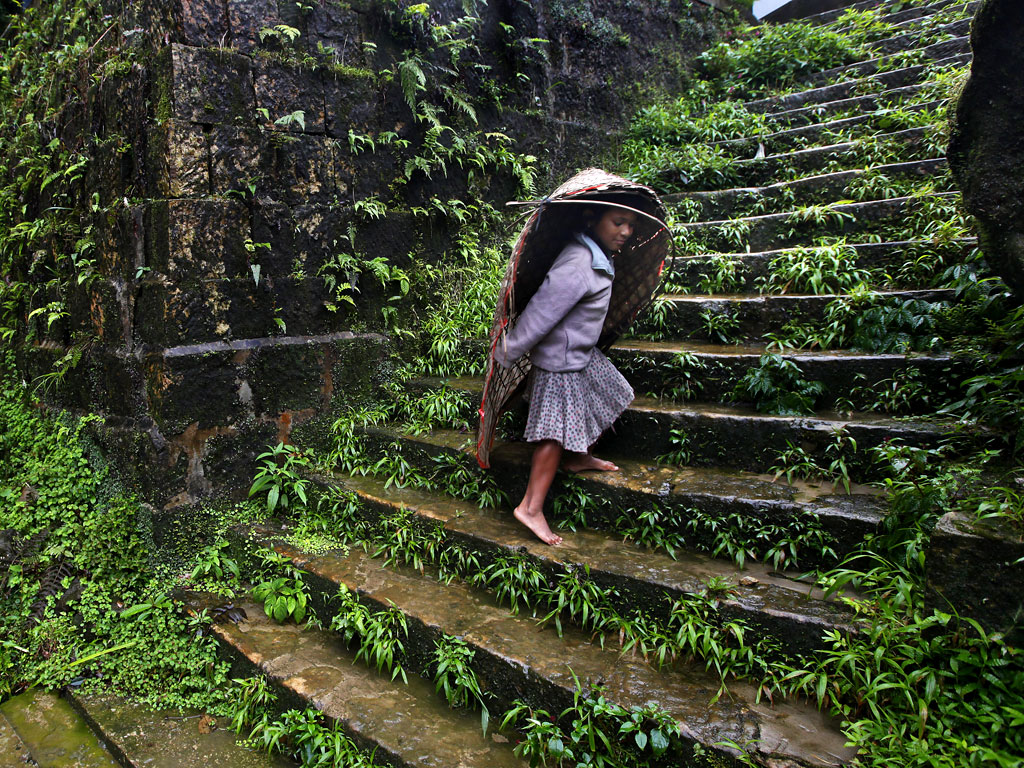Meghalaya Tribals Threaten To Move UN On India-Bangla Boundary Accord

NEW DELHI: Angry and resentful of the fact that they were “not made party” to the notable Land Boundary Agreement (LBA) between India and Bangladesh, hundreds of tribal landowners of the northeast state of Meghalaya have threatened to move to the United Nations (UNO).
According to a news agency, landowners, Rangbah Shnong (traditional village heads), Syiem and Dolloi (heads of states), in a meeting held at Dawki town of the Jaintia Hills district last week have demanded an immediate review of the recent Indo-Bangla boundary agreement.
Stating that “the agreement was finalised without their knowledge", they notified that they would send petition to the UNO requesting the organisation to intervene.
“As indigenous people, a petition would be sent to the United Nations Organisation for intervening and overseeing a fresh boundary survey under the mandate of the UN," Grand Council of Chiefs Chairman John F Kharshiing said in a statement in Shillong on Monday night.
Perturbed about the deal between the two nations, he said that the protocol as well as the final agreement was signed "in absence and ignoring the claims of landowners and indigenous traditional institutions which is also a violation of Indigenous Human Rights."
Kharshiing expressed serious concern over the fact that the exchanges of land, especially from international boundary pillar 1251 (Nongjri) upto IB Pillar 1299 (Hawai Sangkhat- Jaliakhola) and IB Pillar 1315 upto 1318 at Nunchera show a loss of 278 acres area to Khasi and Jaintia including others.
"The lack of clarity in the protocol and the bill passed by the Parliament would seriously affect areas such as Raid Mukertilla and Hima Khyrim upto the extent that IB Pillar 1272 is presently located along the sacred forest of the Ryngksai Clan at Umkrem village and there is every possibility that this precious biodiversity will also be lost to Bangladesh," he said.
Adding that many other landowners were not consulted too, the tribal chief’s leader said "Among other villages to be adversely affected by the new demarcation are Umkrem, Lyngkhat, Pyrdiwah, Tamabil, Amsku, Amjalong, Rongkum, and Muktapur whose village elders and the landowners along the international border were not consulted before the agreement”.
Kharshiing also pointed out that there is a different landholding system that the tribal Khasis and Jaintias in Meghalaya have, and hence, the District Council, the state government as well as the Centre "ought to recognise" these customary land laws.
The Land Boundary Agreement, pending since 1974 i.e. the first time India and Bangladesh signed the agreement, was finally adopted on May 7 this year after the Indian Parliament passed the 100th Amendment to the Indian Constitution and ratified on June 6 during Prime Minister Narendra Modi’s visit to Dhaka recently.
This agreement which aims to solve the porous border issue to an extent, provides for exchange of enclaves on both the sides. As per the agreement, India will get 51 Bangladeshi enclaves in the Indian mainland, while Bangladesh will get 111 Indian enclaves in the Bangladeshi mainland. The enclave residents will also be allowed to either reside at their present location or move to the country of their choice.
The physical exchange of enclaves will be implemented in phases between July 31, 2015 and June 30 , 2016.



